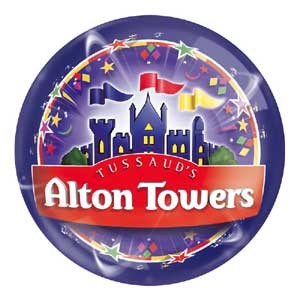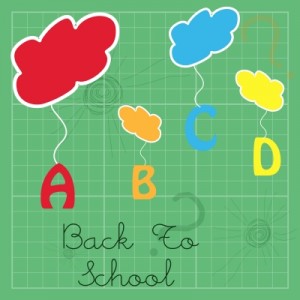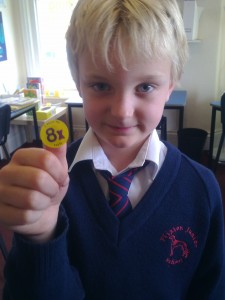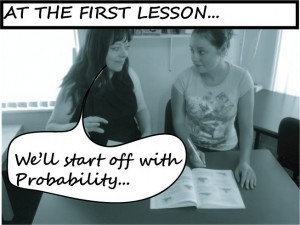
Trafford's entrance exams: like a trip to Alton Towers but with desks...
As the leading entrance exam tutors in Urmston and Stretford (if not the universe!), we at Better Tuition love nothing more than sharing our expertise with parents, so here is plenty. There are less than two weeks before entrance exam season kicks off in Trafford, so you need to make sure you – and your child – are fully match fit and as ready as you can be to emerge from the academic scrum on the winning side.
1. Be sure that you are aware of the requirements of the particular entrance exams you intend entering. For example, if St Ambrose Barlow or Loreto were your schools of choice, you would have no need to practise Non-Verbal Reasoning as neither school tests NVR (at the moment). By the way, we would advise you to enter more than one exam.
2. Better Tuition recommends GL Assessment practice papers – and you should be tackling them with a vengeance by now. Your child will benefit from instant feedback, so you must always try to mark their work immediately (we do – and we mark our practice tests within 24 hours). It can beneficial to complete each paper around 2-3 times and you should now be completing whole papers in the most realistic timed conditions you can muster.
3. Use our Entrance Exam links, which direct your child to fun learning activities and learning games which directly relate to the entrance exams.
4. Beware of how you offer rewards. Imagine being ten again: if your parents offered you a fantastic present such as an iPad, or a holiday for passing your exams, and then you failed you would not only have failed but also have missed out on something you really, really want. To a ten year old, that feels like punishment. Very few children will do any less than their very best in an exam, so rather than rewarding success, which is its own reward, you should consider a reward that will motivate your child to spend time preparing for the exams. The best rewards are simple ones like a trip to the park or the swimming pool, or a cake or staying up half an hour past bedtime at the weekend.
5. Do not listen to other parents who tell you their child was scoring 85% on NVR at the beginning of Year 5. This will make you feel anxious and you will communicate this to your child. Enough said.
6. The weekend before the exam, why not have an entrance exam party? Get mostly adult family round to take part in entrance exam quizzes and compare scores. Designate a quizmaestro and mix up ‘on the buzzer’ rounds with timed tests (read out a maths problem and get them to hold up their answer after 90 seconds), photocopied sections of the practice tests, and Odd One Out rounds (NVR or VR is ideal for this). Your child’s confidence will soar as s/he observes the dismal performance of most adults on these tests and although the quizzes will give your child a good practice, it won’t feel like work or pressure, and trust me, the adults will LOVE it!
7. Make sure your child knows that there will be several hundred other children at the exam venue on the day. Ask them to visualise this; compare it to a non-threatening event like visiting Alton Towers when it’s busy. It’s important that they understand there will be lots of other children there, as they can be quite shocked and panic when they see the assembled hordes on the day.
8. The day before the exam, do 15 minutes of each section of the exam (eg. NVR, Maths, VR), then get your child to do some hard physical exercise. The benefits are manifold: exercise is relaxing and oxidises the brain, helping it function more efficiently; physical activity will distract your child from any nerves bubbling up; with luck the activity will tire your child out and s/he can enjoy a good night’s sleep.
8. On the day of the exam, do whatever it takes to get your child to eat some breakfast! The ideal breakfast is porridge with berries or oatcakes with banana, because oats provide slow releasing energy. They should take a snack to the exam also – a drink and a piece of fruit is ideal but if they don’t like fruit, try to compromise. Some children take a while to key their brain in to the exam paper – if your child is one of these, s/he will score poorly in the first ten or so questions of practice tests, then improve. IF this is the case, you might want to do NO MORE than 5 minutes practice on each paper. Otherwise, I wouldn’t do any practice on the morning of the exam.
9. If the school is not too far away, you should consider walking there, to clear away the cobwebs and take away the stress of parking along with 1,000 other stressed out parents. If you are driving, try to go with two adults so that one can drop off and the other can accompany the child. The last thing you want is to have to drop your child off alone at a strange school, so leave enough time to park a few streets away.
10. After the exam, a reward is a must, whether it be an afternoon in the park, a trip to the cinema or a freshly baked cake. Give your child something to look forward to during the exam and this will boost their performance ever so slightly.
Finally, entrance exam season can be an anxious time for everyone (even tutors!) but try to stay as calm as you can. If you need help, advice, lessons or a practice test (we are running a final practice test on 4th September 2011), call Better Tuition on 0161 748 3912 or pop in and see us.












